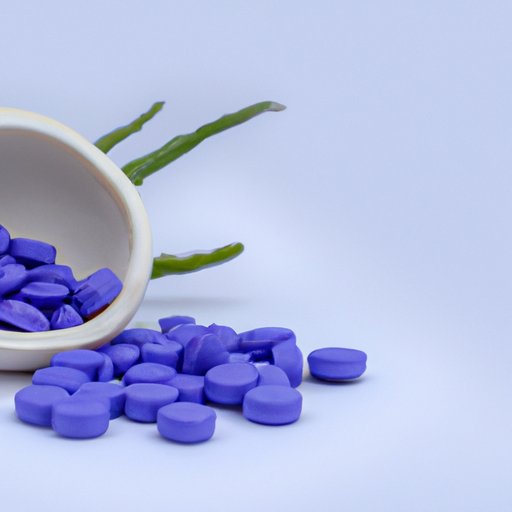
Introduction
Sinus infections are a common ailment that many people experience throughout their lifetime. This condition occurs when the sinuses become inflamed, typically due to a viral or bacterial infection. While sinus infections can often be treated with self-care measures and symptom relief, the debate over the use of antibiotics in treating severe or persistent sinus infections has been ongoing for years.
In this article, we’ll explore the question of whether antibiotics are necessary for sinus infections. We’ll discuss the pros and cons of antibiotic treatment, as well as natural remedies for relief. We’ll also examine the dangers of antibiotic overuse and the importance of accurately diagnosing a sinus infection. By the end, readers will have a better understanding of their options for treating this common ailment.
Is Antibiotic Treatment Necessary for Sinus Infection?
When it comes to antibiotics and sinus infections, there are various opinions on the necessity of their use. Some healthcare professionals believe antibiotics are the most effective way to treat sinus infections, while others assert that they are overprescribed and not always necessary.
Research has shown that antibiotics can effectively treat sinus infections caused by bacteria. However, viral sinus infections cannot be treated with antibiotics, as these medications are only designed to fight bacterial infections. Therefore, it is essential to consult with a healthcare professional to determine if the use of antibiotics is necessary.
Natural Remedies for Sinus Infections: A Guide to Drug-Free Relief
Natural remedies are an alternative to using antibiotics and other medications to treat sinus infections. They offer symptom relief and can help to alleviate sinus pressure, congestion, and pain. Here are some drug-free approaches for treating sinus infections:
Saline rinses
Saline rinses are an excellent way to clear nasal passages and relieve sinus pressure and congestion successfully. A saline mixture can be made with specific measurements of salt and water or purchased over-the-counter in a pre-mixed nasal rinse solution. Simply leaning over a sink and using a neti pot or squeeze bottle, the saline rinse can be used to help clear out the sinuses and bring relief.
Steam treatments
Steam treatments can help to moisturize nasal passages and reduce congestion. A warm, moist towel over the face or inhaling steam from a bowl of hot water or a humidifier can offer relief for sinus pressure and discomfort. Adding a few drops of essential oils such as peppermint, eucalyptus, or tea tree can create an aromatic and therapeutic experience.
Herbal remedies
Many people find relief from sinus infections by using herbal remedies. Herbs such as echinacea, goldenseal, and elderberry have been known to help boost the immune system and provide relief from cold symptoms. Other popular herbal options for sinus relief include chamomile, ginger, and garlic.
Other drug-free approaches to relieving sinus infections
Additional ways to relieve sinus infections include staying hydrated by drinking plenty of fluids and avoiding caffeine and alcohol. Getting enough rest and using a humidifier can also help to alleviate sinus pressure and congestion. Depending on the severity and cause of the sinus infection, these natural remedies may offer the necessary relief without the need for antibiotics.
The Dangers of Antibiotic Overuse in Sinus Infections
While antibiotics can effectively treat bacterial sinus infections, improper use and overprescribing have led to antibiotic resistance. This condition occurs when bacteria adapt to antibiotics and develop the ability to resist and evade them. Antibiotic resistance is a severe public health concern, as it can make bacterial infections much harder to treat in the future.
Additionally, many people experience adverse side effects from antibiotic use. Common side effects include nausea, vomiting, diarrhea, and allergic reactions. In severe cases, antibiotic use can lead to more severe complications, such as C. difficile infection.
Sinus Infections and Antibiotics: What Your Doctor Should Consider First
When considering whether to prescribe antibiotics for a sinus infection, healthcare professionals must take many factors into account. Factors such as the severity, duration, and cause of the infection, as well as the patient’s age and overall health, are essential considerations. A proper diagnosis of a bacterial infection is critical before antibiotics are prescribed.
Physicians may also take into account a patient’s antibiotic resistance history, as well as current medication usage. In some cases, a wait and see approach may be taken before antibiotics are prescribed to allow the immune system to fight off the infection on its own. Still, most physicians consider the patient’s symptoms, history, and overall health before making a treatment decision.
The Placebo Effect and Antibiotics: Why You Might Not Need Those Pills for Your Sinus Infection
Research has shown that the placebo effect can be a powerful tool in treating sinus infections. Often when patients believe they are taking medication, their symptoms improve, even if the treatment used has no active ingredients. Therefore, even though antibiotics may not be necessary in certain cases, patients may still feel as though they are benefitting from the treatment.
In some cases, healthcare professionals may choose to prescribe a placebo to help patients feel better while recognizing that antibiotics are not necessary. This approach allows patients to feel as though they are getting the proper care while reducing the risk of antibiotic resistance and side effects.
Conclusion
In conclusion, sinus infections are a common ailment, and antibiotics may not always be necessary for proper treatment. Natural remedies, proper diagnosis, and the careful consideration of the risk and benefits are all important aspects to consider when discussing treatment options for sinus infections. Healthcare professionals can offer guidance and support, and patients should always consult with a doctor to determine the best course of treatment for their individual needs.
Therefore, the call to action for readers is to consider alternative treatments, such as natural remedies, and consult with a healthcare professional before deciding to take antibiotics. Taking this approach can help to reduce the risk of antibiotic resistance, minimize side effects, and provide the necessary relief for sinus infections.




